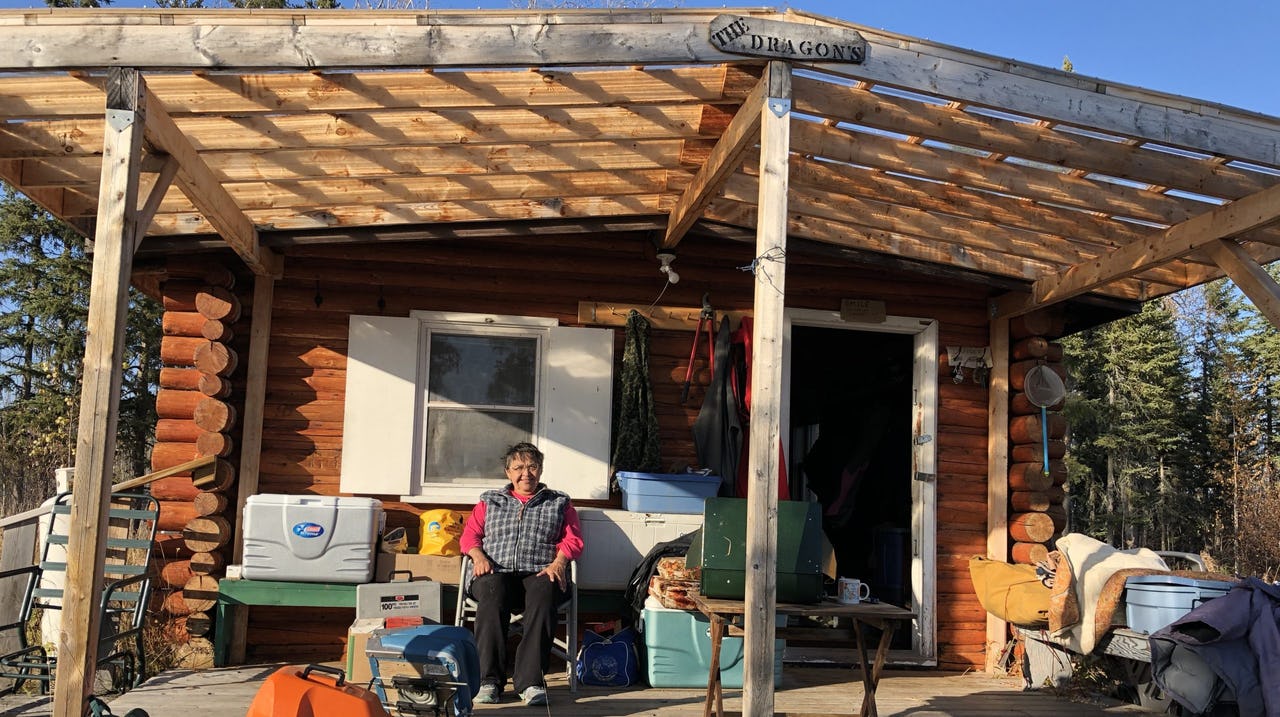Balancing Worldviews: Climate Change Solutions in Canada's North

Elder Mrs. Jane Dragon (Setsune) at her cabin on the Taltson River. Photo: The Gordon Foundation
Through a partnership with the Gordon Foundation, The Arctic Institute is publishing a series of papers on Canadian Arctic policy critiques and solutions written by Jane Glassco Northern Fellows. The Jane Glassco Northern Fellowship Program recognizes the leadership potential of northern Canadians aged 25-35 who are passionate about addressing emerging policy challenges and building a strong North. During the 18-month program, Fellows deepen their understanding of important northern issues, and develop the skills to articulate and advance their ideas and policy research. Fellows publish individual and group policy research papers. For more information, please visit The Gordon Foundation website and follow the Fellowship on Twitter.
- Turning to Traditional Processes for Supporting Mental Health
- Education Policy to Supports On-Land Learning in Northwest Territories
- Treaties, Modern Negotiation, and Indigenous Resource Management in the Canadian Arctic
- School Curriculum for Arctic Youth Must Include Land Claim Agreements
- Ways Forward in Addictions Programming in the Canadian Arctic
- Indigenous Language, Community, and Legends in Post-Secondary Education
As young Indigenous northerners who love our Lands and are deeply connected with our communities, climate change is a clear threat to our existence. After discussion and reflection, we came to an understanding: Climate change, in our worldviews, is a symptom and not a primary problem. Treating the symptom was not resonating with us. What we see as the fundamental issue, however, is something that we all hold dear: The primary problem causing the symptom of climate change is a rift in the relationships between Land, peoples, and communities. Through our group discussions, we realized that based on our worldviews, climate change, and other environmental problems we face today, originate from a lack of relational accountability and reciprocity between us and our Lands. Balance has not been prioritized, leading to positive feedback effects on a majority of systems.
This framing describes a holistic and all-encompassing problem. Through this frame, we discovered we had much to say about climate change and the North – our home. We believe that a neglected piece of the conversation in the North is a difference in worldviews between the scientists and professionals that study climate change, and the Indigenous peoples who are being disproportionately affected by it. It is this difference in worldviews, and the solutions that come from it, that our group explores in this paper.
Chloe Dragon Smith was born and raised in Yellowknife, NWT. Of Dënesųłiné, French, and German heritage, she grew up close to her Indigenous cultural values and learned traditional skills for living on the land. Tina Piulia DeCouto is currently a Jane Glassco Northern Fellow and works for Nunavut Tunngavik Inc. (NTI), a land claims organization representing the interests of Inuit in the implementation of the Nunavut Agreement since 2014. Most recently, she has taken on the role of Director for Social and Cultural Development. Ashley Carvill was born into a family of leaders within the Carcross/Tagish First Nation (C/TFN). Her training in traditional Indigenous values came at the knee of her paternal great-grandmother, T’sint.